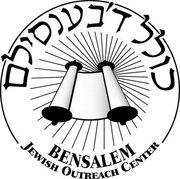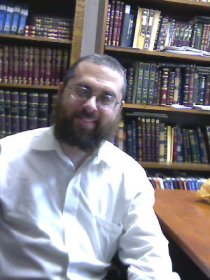Parshas Va’airo | The Kollel Connection

January 16, 2014 – Candle lighting 4:41 pm, Shabbos Ends 5:50 pm
Note: Times are for Bensalem; Check your local calendar for exact times in your area.
Welcome to the Kollel Connection.
We appreciate your comments and feedback.
This week we read Parshas Va’airo. In the Parsha we read many times that Hashem tells Moses that He is hardening the heart of Pharaoh. The commentaries ask, how could Hashem harden the heart of Pharaoh? Is this not denying Pharaoh free will – the ability to choose whether to sin or not?
At the end of the parsha, we read of the plague of hail. The Torah tells us that the plague was so strong that it destroyed much of the crops of Egypt. Pharaoh was so overwhelmed by this plague, that he summoned Moses and Aaron and asked them to pray to Hashem that the hail stop, and he will then let the Jews go. ( Exodus 9:28). The Torah then tells us that Moses responded to Pharaoh, telling him that he will pray that the hail stop, but he knows that Pharaoh and his servants do not yet fear Hashem. The Torah then mentions that the hail had destroyed the flax and barley, but not the wheat and the spelt… The Torah tells us that they were not destroyed because they were afilos – which means that miracles (niflaos) happened to them. The Torah then proceeds to tell us that Moses went and prayed for Pharaoh that the hail should stop.
The Ohr Hachaim poses a simple question: Why do we have to hear about which crops were destroyed and which were not in the middle of the story? Isn’t that detail out of place? Why doesn’t it just say that Pharaoh asked them to pray, and they did,…? The Ohr Hachaim answers that this fact – that some of the crops were miraculously spared from the hail – was what prompted Moses to say that Pharaoh would not really let the Jews leave. Once Pharaoh saw that there was a miracle and some crops survived, he let himself believe that there was more than one Deity in control, and that some other Deity prevented Hashem from destroying the crops under its control. That is why it is so essential for the Torah to tell us about this miraculous saving of the crops, to understand the hardening of Pharaohs’ heart.
Nachmanidies explains, this is really the explanation of why Hashem hardened the heart of Pharaoh. Once Pharaoh was under attack from the first few plagues, he would have given in just to escape them. Hashem made his heart harder, so that he will make an objective decision whether to return to Hashem or not.
Often we feel overwhelmed by a challenge that we face in life. If we can just bear this thought in mind – if the Almighty picked a given situation for us, it’s because we can rise to that situation and overcome the challenges that face us from it, then we will have a much easier time dealing with it. This episode of Pharaoh has to teach us that all details of any struggle that we have are given to us with Divine providence, that will enable us somehow to shine from the circumstance that we have to deal with.
Wishing you and your family a Great Shabbos!!!!!!!!
Rabbi Moshe Travitsky
To sponsor an issue of the Kollel Connection, please email BJOC@bensalemoutreach.org Sponsorships are only $36 a week.
